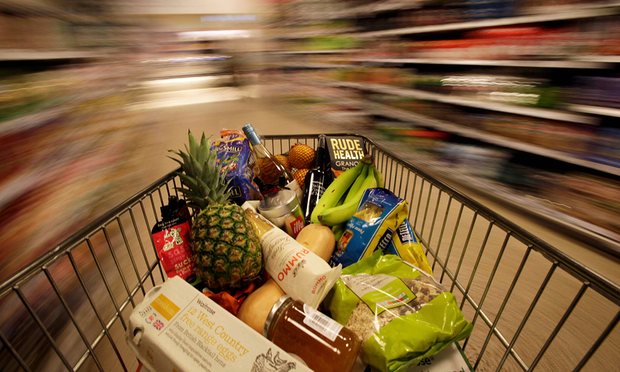Global inflation forecast to rise to 7.5% by the end of 2022, driven by food, fuel, energy, and supply chain disruption, observes GlobalData.
GlobalData has raised its global inflation rate forecast for the end of 2022 by 2.7 percentage points, reaching 7.5%*. The leading data and analytics company says the decision was driven by the cost-of-living crisis, soaring fuel and energy costs, and the global supply chain disruption caused by the Russia-Ukraine war. The original forecast, made in February, expected an inflation rate of 4.8% by the end of 2022.
GlobalData’s Country Analytics database, reveals that the US Federal Reserve hiked its policy rate three times in the period January 2022 to June 2022, by a total of 225 basis points, to reach 2.25%—with further rate hikes anticipated in the coming months. Meanwhile, Brazil increased its key policy rate by 400 basis points*** (bps), India by 90 bps, Argentina by 1,200 bps, Russia by 100 bps, Canada by 125 bps, the UK by 100 bps, the UAE by 148 bps, and South Korea by 50 bps.
Bindi Patel, Economic Research Analyst at GlobalData, comments: “A Fed policy rate hike will make emerging markets a less attractive destination for investment. Consequently, emerging and developing economies are expected to be impacted the most, since they are not only facing high inflation rates but also a depreciation in their local currency—ultimately resulting in foreign direct investment outflows.”
Middle East
GlobalData forecasts the Middle East and Africa (MEA) region’s inflation rate to remain high at 18.7% in 2022, an upward revision from 10.9% in February 2022. Countries that are expected to witness the highest inflation rate increases in the region in 2022 are Türkiye (63.9%), Iran (32.8%), and Nigeria (16.9%). In June 2022, Saudi Arabia recorded an inflation rate of 2.3%, up from 2.2% in May 2022, due to a rise in the price of food (4.7%) and transport (2.5%).
Europe
In Europe, the Russia-Ukraine conflict and the number of sanctions imposed on Russia have exacerbated pressures on already strained global supply chains. GlobalData has revised its 2022 inflation rate projections for Europe upward to 9.4% in July 2022. Ukraine (21.5%), Russia (16.9%), Poland (13.1%), the Czech Republic (14%), Belgium (8.9%), and the Netherlands (8%) are estimated to have the highest inflation level in the region in 2022, according to GlobalData.
Americas
The conflict in Ukraine is also forecast to drive inflation rates to record highs in the Americas’ largest economies, including the US (7.7%), Canada (6.7%), Brazil (9.6%), Argentina (59.3%), Chile (10%), and Colombia (8.8%) in 2022.
The increase in inflation was caused by a surge in food and energy prices. In June 2022, the inflation rate in the US was recorded at 9.1%, the highest since November 1981, driven by a rise in the prices of oil (98.5%), gasoline (59.9%), and food (10.4%).
GlobalData forecasts that the inflation rate in the Americas region is expected to rise to 7.5% by the end 2022, based on the forecast made in July 2022, which is a sharp upward revision from the 4.4% forecast, made in February 2022.
Asia-Pacific
The inflation rate in the Asia-Pacific region is forecast to rise to 6.6% in 2022, a 2.7 percentage point upward revision from its earlier forecast and a rise from 2.7% in 2021. Sri Lanka (29.7%), Turkmenistan (17.5%), and Mongolia (15.5%) are expected to have the highest inflation levels in the region in 2022. Inflation rate projections for India and China by the end of 2022 have been revised upward to 6.8% and 2.4%, respectively, from GlobalData’s earlier forecast of a respective 5.3% and 2.1%.
Inflation rate in Sri Lanka skyrocketed to 54.6% in June 2022, with the cost of food and transport rising by 80.1% and 128%, respectively, on an annual basis. India recorded an annual inflation rate of 7% due to a year-on-year (YoY) rise in the prices of food (7.8%) and fuel and electricity (10.4%).
Patel concludes: “Governments across the globe must focus on structural reforms to deliver growth in the medium term while maintaining tight control of monetary policy.”

 Naira4 weeks ago
Naira4 weeks ago
 News3 weeks ago
News3 weeks ago
 Education4 weeks ago
Education4 weeks ago
 Social Media4 weeks ago
Social Media4 weeks ago
 Technology4 weeks ago
Technology4 weeks ago
 Investment4 weeks ago
Investment4 weeks ago
 Dividends4 weeks ago
Dividends4 weeks ago
 Economy4 weeks ago
Economy4 weeks ago


























